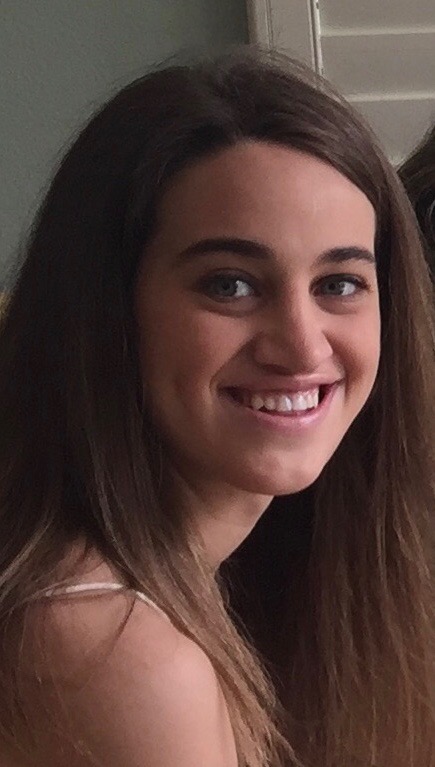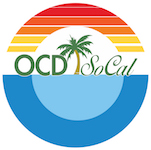
Hello, my name is Abby, and I am a 22-year-old living in Southern California. I have suffered from obsessive-compulsive disorder (OCD) since I was four-years-old. However, I hid the symptoms from friends, family, and everyone else for 15 years. I did this because I thought I would not be loved if people found out I had a mental illness. I believed I would lose everyone that I had in my life if they found out.
I still remember the first time I finally opened up to anyone about my OCD. I was 19-years-old and a student at Orange Coast College. On a particular day, when I was on campus, the thoughts were exceptionally crazy, vivid, and intense, causing me to begin to run around the track for no reason. I felt it was the only thing I could do to make the thoughts go away. I literally did not stop until I fell and hurt my ankle. I was in trouble and needed help, so thankfully, a friend brought me to the Student Health Center. After the initial intake, I began weekly therapy with two different therapists.
I knew by this point, my OCD was severe, but I was still hesitant to open up fully about the nature of my thoughts–even to my therapists. One day, in a meeting with the supervising therapist Larry, I opened up to him that I have intense thoughts that are weird and scary in nature. I believed that my mind had a different personality trait than my logical mind. Therefore, I could not control my thoughts. I even felt that perhaps I was crazy! I was sobbing to him in the session. Larry asked why I thought others would think I was crazy. My reasoning was because I knew that everyone occasionally has disturbing thoughts. Still, the difference was mine would not let up. My mind would often move from one worrisome thought to another. Due to their intensity and taboo nature, I felt I had to keep them a secret to everyone! When I finally opened up about the nature of my thoughts to my therapists, they were supportive. They reassured me that I was not crazy–and this could be treated! After some therapy, I began to see some relief.
However, two years later, my OCD became even more severe and began to take over my entire life.
I have always been passionate about dance; it has been my major escape. I love a challenge, and because I was not naturally gifted, I had to work harder than most. My hard work was beginning to pay off, and I was finally challenged during every class by my dance teacher, Mr. Jose. He really seemed to believe in my capabilities. Overall, I felt I was being treated equally, even though I thought I was not as talented as the other dancers. Then things began to pile up on me. I had a dance injury, plus my OCD got to the point that I could not take it anymore. That same year, at 21-years-old, I was also diagnosed with fibromyalgia. This disorder causes pain in every muscle in your body, sometimes all at once. I was supposed to be living my life to the fullest, but I couldn’t because I was so sick. Both my physical body and my mind were being attacked. If someone were around me at this point, he or she would never have known I was ill because both OCD and fibromyalgia are not visible to others (like an injured leg in a cast would be). However, inside I was a mess!
It got to the point where I did not want to live anymore, and on the weekend of Valentine’s Day, I took some pills–a lot of them. My thinking was that if I had to deal with these disorders much longer without the proper help, I did not want to live anymore. I no longer wanted to feel crazy and have to live in fear for the rest of my life. I feel like this moment was a big cry for help, and my only way to be heard.
My parents and I realized that my situation was more complicated than they initially thought–and that I needed more intense treatment. I went to my doctor the day after this event took place. He gave me some heavy medications to calm down my mind and body. The next two weeks of my life, for lack of a better word, sucked. I experienced panic attacks off-and-on every single day. It was like I was living in the worst nightmare I could ever imagine. After these two weeks, my panic attacks began to fade away. However, once the panic attacks subsided, I began to feel depressed. This would go on to last for two months.
Dealing with OCD, and the accompanying panic and depression had been the most tiring thing I have ever had to deal with in my life at that point. Having the disorders for so long and not being able to fully share the emotion and the sadness that these disorders were causing, finally caught up to me. It was too much to keep it all locked in. I also felt very alone. No one that I knew had this disorder, and I was hoping that I was not the only person with these terrible thoughts.
My mom found a support group for OCD and tried to get me in as soon as possible. However, I still was not mentally strong enough to be in this group. My mom eventually found out that OCD Southern California, an official affiliate of the International OCD Foundation, was having its local annual OCD conference. I remember my mom pushing me to go after I initially refused to go to the conference. She ended up literally dragging me there. At the conference, I met the Vice President of OCD So Cal, a therapist, Chris Trondsen, who practices at the Gateway Institute in Costa Mesa, California. There, he shared his story of recovery, and hearing his story was the first time in a really long time I did not feel alone.
At the conference, Chris Trondsen, and his mom Liz, let attendees know about a free Family and Loved One’s OCD Support Group that met at the location of the conference once a month. That next weekend was family group, and I remember Chris turning to me and asking me to tell the group a little bit about myself and my journey with OCD. At that moment, I just broke down! There was a whole group of people with the same disorder I had. I imagined a bunch of crazy people I would never relate to, but it was not that way at all. Everyone was great, loving, and supporting– and so normal too! I felt so hopeful at that meeting. I remember feeling so safe, surrounded by my peers that understood my struggle.
After the meeting, my family and I went out to eat, and I remember that was the first time I laughed since getting sick. I felt a little like my old self again. I was already working with a therapist, but after going to the group for a while, I realized that Chris Trondsen really pushed his clients to get better. He was tough on his clients, and that is just what I needed at the time. I started my first couple of sessions with Chris and was already beginning to feel better.
At first, when I went to treatment at Gateway, I put a lot of walls up. I began meeting more people with OCD, along with depression, and that made the fear of these disorders and thoughts decrease. With time, I was able to get a lot better at utilizing exposure and response prevention (ERP) to treat the OCD symptoms.
Although I am doing so much better than when I first started out on my treatment journey, there is still not a day that goes by that I don’t have to deal with OCD. However, I have learned to accept this. By practicing daily what I learn in treatment, I still can have a happy and improved life. I still have break downs here-and-there, and I also get frustrated once in a while. However, I have so many resources and support around me now. Additionally, I have been going to The Gateway Institute’s weekly teen and young adult support group and meeting others my age going through this. This peer support has made my life easier.
I am still recovering from OCD, and probably will be in recovery for the rest of my life, but I am leaps and bounds ahead of where I was a year ago. I am so grateful for the treatment I have received. I want to thank all of my initial therapists, the Gateway staff, and Chris Trondsen, for being my OCD heroes! I also want to thank Chris for continuing to push me and never giving up on me. Thanks to the entirety of the support I receive, as well as the hard work I put in each day, I look forward to a fulfilling future.
